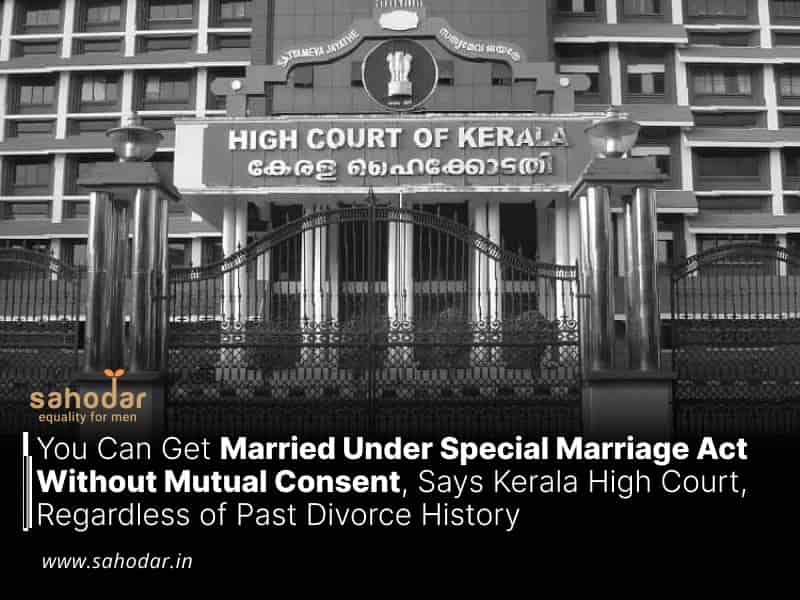In a recent legal pronouncement, the Kerala High Court has articulated that the registering authority tasked with processing marriage applications pursuant to Section 8 of the Special Marriage Act is not obligated to scrutinize the specific nature or circumstances surrounding the divorces obtained by the applicants.
The judicial bench underscored that the paramount consideration for the registering authority is to ascertain the absence of a subsisting marital bond with another living spouse at the juncture of marriage registration by the parties seeking matrimony under the aforementioned Act.
“Going by the mandate of Section 8 of the ‘Act’, it only requires the parties to satisfy the Registering Authority that they have no living spouses at the time when the application is made and the marriage is registered. Therefore, the only aspect to be decided by the respondent is this and nothing more.”
In the subject case, two individuals sought to contract a marriage in accordance with the provisions of the Special Marriage Act. Regrettably, their application encountered a denial by the Sub Registrar, who predicated this rejection upon the insufficiency of evidentiary substantiation concerning their unmarried status and the absence of extant marital partners, prerequisites explicitly delineated within Section 8 of the Act. The Sub Registrar specifically contended that the applicants had not satisfactorily demonstrated the dissolution of their antecedent marital union via the mode of mutual consent.
The judicial bench, upon its deliberation, opined that the legal framework does not universally mandate the condition of mutual consent as a sine qua non for divorce proceedings.
“This opinion cannot be countenanced by this Court since it falls foul of the forensic scheme, because no law mandates that all divorces have to be obtained by ‘mutual consent’. It is not the nature of the divorce which is relevant, but the factum of such having been obtained by the parties to the intended marriage validly.
Counsel for the petitioners, Advocate Sajeev Kumar K Gopal, contended that the applicants had furnished documentary evidence establishing their prior marital status and subsequent divorces from their respective spouses. The counsel asserted that this evidentiary record should suffice to establish the petitioners’ single status. However, the respondent, the Sub Registrar, declined the petitioners’ application, asserting that the divorces should have been predicated upon mutual consent. This premise for rejection was impugned as being in contravention of prevailing legal norms.
Government Pleader Vidya Kuriakose posited that the registering authority may have been deprived of comprehensive information regarding the particulars surrounding the divorce proceedings undertaken by the prospective bride and groom. Such informational lacunae may have engendered reservations about the veracity of the petitioners’ claim of being without living spouses.
Upon a meticulous review of the submissions and accompanying documentary evidence, the court concluded that, prima facie, the petitioners had indeed secured divorces from their antecedent spouses, as is substantiated by the orders issued by United Kingdom authorities. The court underscored that Section 8 of the Special Marriage Act imposes a singular criterion upon applicants: the demonstration of the absence of living spouses at the juncture of submitting the matrimonial application. Thus, the Sub Registrar’s insistence on mutual consent for divorces was deemed as misapplication and contrary to the legislative prescription.
In consequence, the High Court invalidated the Sub Registrar’s initial decision and mandated a reevaluation of the petitioners’ application, inclusive of all pertinent evidentiary materials.
Pursuant to the court’s directive, the Sub Registrar is enjoined to grant the marriage request should they be satisfied that the submitted documents establish the petitioners’ lack of living spouses at the time of their intended matrimonial union.

